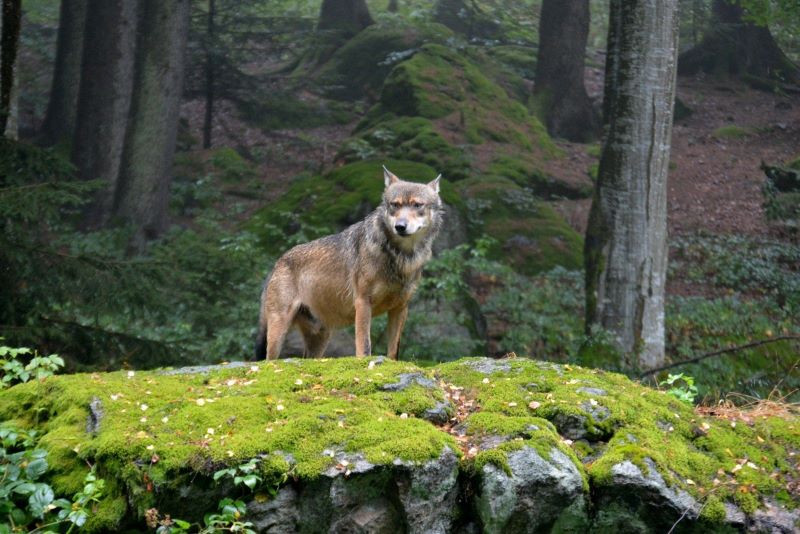A Council working group discussed last Tuesday a Commission proposal to downgrade the protection of wolves in the EU but did not take any decision.
A decision in the working group would require a qualified majority. An EU source told The Brussels Times that the member states were divided on the proposal. Some member states opposed the proposal or indicated doubts. Concerns were raised about the scientific data and lack of evidence pointing to a favorable conservation status in the EU.
As previously reported, the European Commission published last December a proposal to lower the protection level of wolves in the EU, claiming that their increasing numbers pose a danger, particularly to livestock.
Under the Bern Convention and EU’s 1992 ‘Habitats’ directive, wolves in most of Europe enjoy ‘strict protection’ status, with provision for exemptions. The Commission proposed to change the international status of wolves from ‘strictly protected' to ‘protected' based on new data on increased populations and impacts.
The proposal followed a data collection analysis last September and was based on an in-depth analysis by a consultancy firm. There are now over 20,000 wolves in 23 EU countries, and their packs are growing continually, occupying larger territories, according to the report.
However, the report admitted that although wolves can attack humans, no fatal wolf attacks on people have been recorded in Europe in the last 40 years. According to a recent survey, a majority of rural inhabitants is of the opinion that large carnivores, such as bears, lynxes and wolves, should remain strictly protected within the EU, and have a right to co-exist with humans.
Related News
- European Commission wants to downgrade the protection of wolves in the EU
- Majority of rural inhabitants in the EU wants stricter protection of bears, lynxes and wolves
- Beware of wolves: EU opens up for hunting of protected species
- At least seven new wolves spotted in Wallonia
Following the discussion in the working group, the Belgian EU Presidency will launch a written consultation based on a steering note with guiding questions. A new discussion is planned on 4 April. The working party on international environment issues (WPIEI) prepares EU positions for international negotiations related to environmental and climate change issues.
The future decision on the protection status of the wolf in the EU legislation will be taken by the Environmental Council and, as a second step, the outcome of the relevant Standing Committee Meeting of the Bern Convention.
The European Parliament will not be involved in the decision-making process but is engaged in the issue. A discussion took place on 8 February in the European Parliament’s Animal Welfare Intergroup. The aim of the discussion was to better understand the implications of the return of wolves in EU’s landscape and how to coexist with them.
A senior Commission official from the Directorate-General for the Environment said the the return of the wolf in the EU is a success story. This does not mean that wolves have reached a favorable conservation status everywhere. Further assessments will be needed in the coming years. There is no other solution than coexistence, the official added.
M. Apelblat
The Brussels Times

